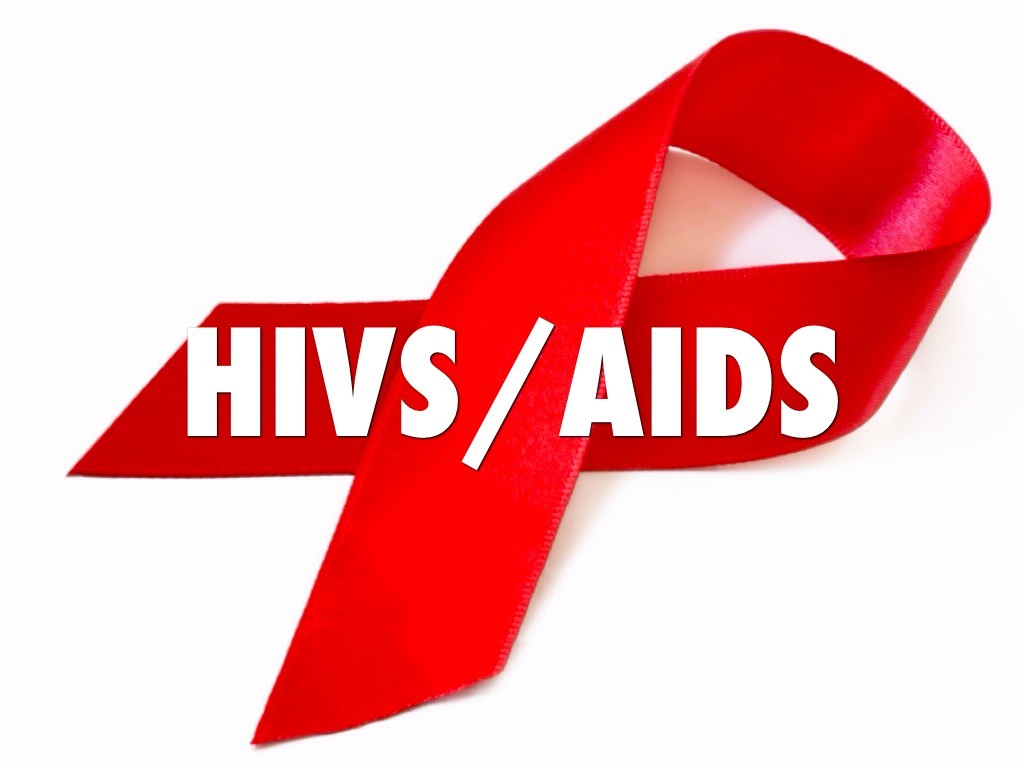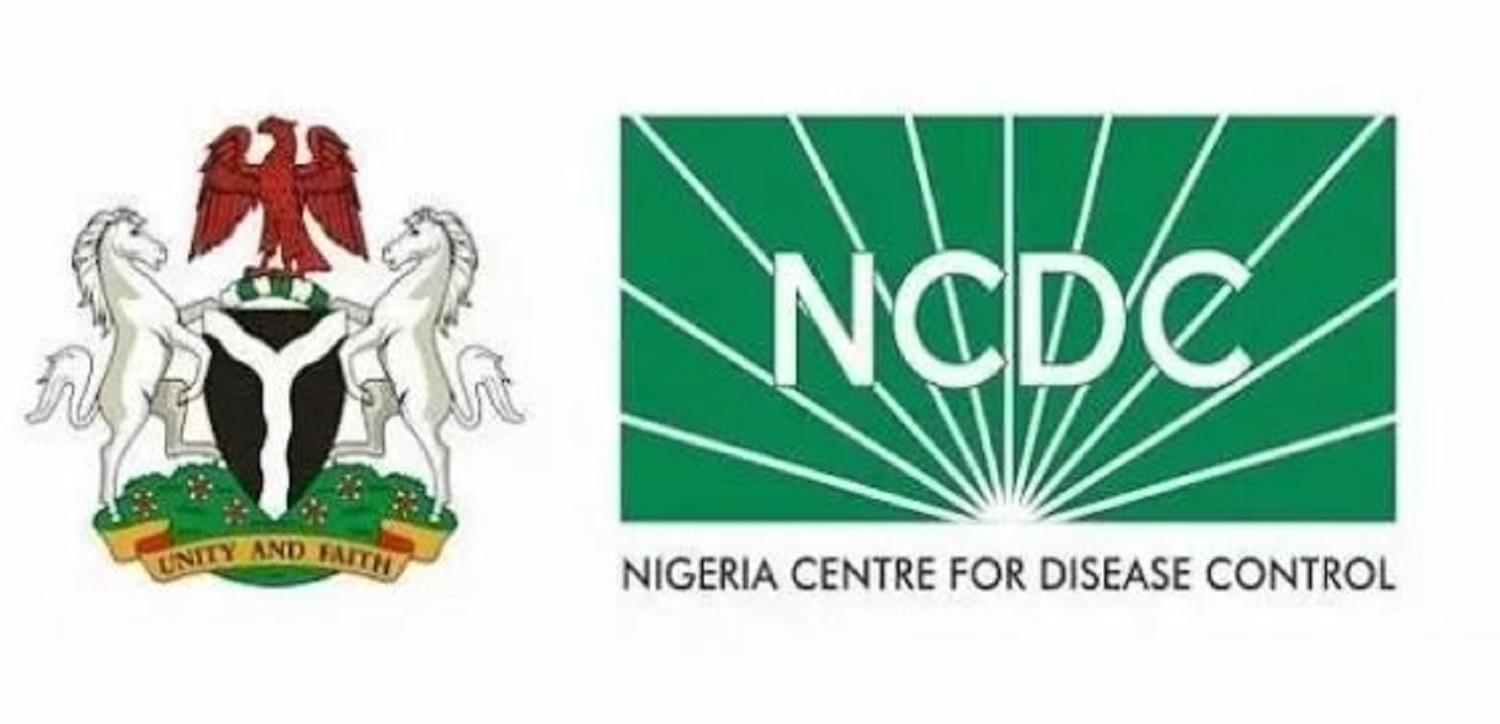Health
The State of E-Health in Nigeria: A Journalistic Exploration of Growth and Challenges

“When we first introduced electronic medical records (EMR) in the hospital, there was serious resentment by the staff, to the extent there were even attempts to burn down the system.
”That was the Clinical Director of Garki Hospital, Abuja, Nigeria, Dr.
Kenneth Ityoh, recalling the initial challenges that the Management faced when a new order of doing things was introduced.Those who tried to burn down the server to circumvent the deployment of the EMR system were “among those that were benefitting from the existing loopholes to steal the hospital’s funds.
Some staff were printing cash receipts and collecting money without remitting same to the hospital’s account,” he explained in an interview last week.Ityoh, a renowned Orthopedic Consultant, also recalled that within the first month of the introduction of the EMR, the hospital’s overhead cost dropped by about 80% because through the system, lots of costs were saved, as most of the financial leakages were blocked.
Benue State University Teaching Hospital, Makurdi
Investigation by NATIONAL ACCORD revealed that corruption among Nigerian health workers – both in the public and private sectors – constitutes one of the major challenges affecting the full-scale adoption of electronic delivery of health care services (also known as e-health) in the country.
Igbo Gabriel Alobo of the Mental Health Department, Jhpiego (an affiliate of John Hopkins University, Nigeria field office) and 5 others (Tolulope Soyannwo, Godwin Ukponwan, Simon Akogu, Abubakar Matthew Akpa and Kazeem Ayankola) had last year, studied perspectives on the pioneering work of Electronic Health Recording (EHR) system in Nigeria with the objective to determine health workers perception, challenges, motivation and satisfaction with EHR.
Although the evolution of this healthcare practice that is supported by electronic processes and communication dates back to 1999, according to Vincenzo Della Mea (a Professor of Medical Informatics at the University of Udine, Italy), it was only in October 2013 that Lagoon Hospitals made news as the first health institution in Nigeria to invest in an electronic system for keeping patients’ medical records.
According to findings, while the EMR system, which Lagoon hospitals deployed in 2013 can be regarded as a hospital and clinic management software that makes it possible to run core financial, clinical, and operational processes, the term “e-Health” refers not only to “Internet medicine” but also almost every activity related to computers and medicine.
Chief Operating Officer (COO) of the hospital, Dr. Naseem Mohammed, said during the launch of the system in 2013 that the EMR would allow Lagoon Hospitals to “create a unique database of all patient’s medical and critical information such as medical history, future appointments, current medications and allergies.”
Kogi State Specialist Hospital is one of the few health centers in Nigeria operating an integrated electronic health record system. The system makes it possible for ongoing consultations to be accessed by other sectors of the hospital, real-time. Kogi State Ministry of Health (SMOH) which regulates health practice in the state has an objective of strengthening the Health Management Information System (HMIS).
At the Garki Hospital Abuja, both Dr. Ityoh and the Head, Information Technology Unit, Mr. Stephen Ayoola Ojokuku, told NATIONAL ACCORD that e-Health was deployed in phases due to the high cost.
The National Hospital Abuja, touted as the best equipped medical facility in Nigeria, has also deployed an IT-based system to enhance operations. It is called health in a box, according to the hospital’s Chief Information Officer, Muhammad Gidado.

“We have the health in the box application which is good. It cuts across all major aspects of the hospital such as record visit, consultation, laboratory investigations and results and prescriptions, “Gidado told NATIONAL ACCORD this week.
In Benue State, Middle Belt region of Nigeria, both the state government and Benue State University Teaching Hospital (BSUTH), Makurdi have integrated ICT into health service delivery.
Commissioner for Health in the state, Dr Joseph Ngbea, told NATIONAL ACCORD last week that they have developed software and deployed health personnel to the local governments, provided them with laptops and tablets to enable them monitor and report some of the common health issues like cholera, Covid-19 and any outbreak in those localities to their Central Collecting System in Makurdi. “We have done so for other ailments including HIV/AIDS”, he said.
The Chief Medical Director of BSUTH, Dr Terrumun Swende, however, describes what the teaching hospital has for now as rudimentary. “For instance, in the NHIS clinic, we have deployed some of that. That is what we are using for our complex billing and a whole lot of things. If you come to our finance, we have some of those ICT solutions that help us in certain areas” he told NATIONAL ACCORD two weeks ago.
“With the Nigerian government’s declaration that the nation cannot afford one doctor to 600 patients’ ratio, many believe that only e-Health can come to the rescue, given its immense potentials as highlighted by experts”
According to the Minister of Labour and Employment, Chris Ngige, Nigeria is unlikely to meet the recommendation of the UN and WHO ratio of one doctor to 600 patients.
In the area of drugs, Aligs Pharmacy & Stores, Abuja, has introduced technology to its business to change the way people receive their medications by ensuring that residents of Nigeria’s capital do not have the need to be physically present at a pharmacy before they can get their drugs or consult a pharmacist or even see a doctor.
Managing Director of the venture, Mrs. Ngozi James, told NATIONAL ACCORD the objective was to expand the role of the pharmacy as a primary care provider by giving Abuja residents easy access to drugs through online shopping and online drug information services.
This is, however, coming 10 years after the Lagos University Teaching Hospital (LUTH), in collaboration with Pfizer, introduced e-Pharmacy services in Nigeria with an installed Health Information System (HIS).
Country Manager, Pfizer, Dr. Enrico Liggeri, had explained during the official launch of the facility in 2011 that Nigeria was selected as the target country for the e-Pharmacy pilot project given the concentration of the largest high-risk patient populations as well as its complex and overstretched healthcare system.
At the Princess Medical Centre, Port Harcourt, Rivers State, South-south Nigeria, where e-health is practiced, the Founder and Chairman, Princess Medical Centre, Dr Emi Membere-Otaji, told NATIONAL ACCORD, “we have automated systems that connect to some of the best medical centres in the world especially Dubai and the UK. This way, our patients get same standards they would have got if they flew out.”
Benefits of E-Health
ICT has had a very positive development in most sectors of human endeavors, including the health sector, and as observed by Dr Swende of BSUTH, Makurdi, there is a wide range of applications of ICT that can enhance healthcare delivery.
For instance, he said, “if we were in a more developed country, booking to see a doctor can be done online as long as it is not an emergency situation. When you come to the hospital setting proper, one of the major advantages of ICT is what is called EMR where people can walk into the hospital just the way you walk into a bank and transact their business using credit/debit card or ATM card. This can also be done in the hospital too when you come in, as far as you are registered, you do not need to join long queues to get the physical paper records.”
According to Ojokuku, the analysis of data from an EMR can alert the medical personnel of rise of communicable disease cases based on demographics and if residential address of patients they are seeing come from high-risk areas.
Gidado of the National Hospital Abuja says e-Health has been very beneficial in the sense that “the system protects the hospital from losing money from likely corrupt practices and it helps the patients from getting victimized also.”
Dr. Swende believes that if the entire country is running with ICT or e-records, when one travels to any part of the country, such person’s medical records can be easily accessed on demand.
Yet another benefit of e-Health can be found in the aspect of e-consultations, where the patient is in a distant town and the medic is giving treatment from a very different location through video conference call.
Garki Hospital Abuja is a good example of how e-Health can enhance efficiency in any aspect of the hospital with proper deployment of ICT software, including management of human resources and also payment of salaries, all of which can be very simple and straightforward, instead of the long tedious method they deploy presently.
The inventory management in stores can also be made easy with e-Health. As both Dr. Ityoh and Dr Swende explained to NATIONAL ACCORD, as you buy like 3000 drugs, you save them up in the system and so with each one you dispense, the system tells you what is left until you reach a critical level where the computer will remind you that this drug will be out of stock soon hence, you have to re-order. The same software can help you take note of expiry dates of each drug you have over the counter like some of these big hospitals.
Challenges of E-Health in Nigeria
While Alobo identified the challenges faced in the deployment of e-Health in Nigeria as low manpower, infrastructure, inadequate financing, inadequate political will and poor knowledge of computers and IT for health recording, there are other little but highly significant obstacles to the spread of e-Health practice in the country.
Doctors and other Health Workers
Dr. Ngbea believes that the challenges currently being faced in the deployment of e-Health in Nigeria are surmountable with time, there are, however, several challenges, the first being even where the ICT solution is on ground, not many doctors and other health workers are able to access or apply them.
Outlining the challenges of e-Health, Alobo said that electronic health record “falls short of being accepted by all cadres of the medical profession,” adding that one of these is “the charting of patients’ information by nurses and the inability to describe peculiar clinical findings on ready-made templates.”
Finance
Findings by NATIONAL ACCORD showed that most of the challenges facing e-Health in Nigeria border on finance because the whole process is capital-intensive.
For instance, after installing the EMR software, the management of BSUTH Makurdi realized that most of the staff on ground were not ICT compliant and it meant doing a lot of training to get them on board.
“We needed to make substantial expenses especially at the initial stage to be able to move,” according to Dr. Swende, who mentioned the need to deploy “either tablets, desk tops or laptops at every point pen and paper were used, and they come with a huge cost”.
Garki Hospital Abuja, as learnt, invested about N30 million (about $72,000) for software development or licenses and support, then probably between close to N15million (about $36,000) for the infrastructure.
This explains the inability of the Federal Medical Centre, Makurdi to start consultation with its patients on the portal it created, according to the Chief Medical Director, Dr Peteru Suega Inunduh.
Poor Internet Connectivity
While Alobo was the first to identify internet services and power outages as some of the problems encountered in the attempt to use the electronic health record, Dr Inunduh of the FMC, Makurdi also expressed concern about the poor connectivity.
Manpower
One of the major challenges faced by National Hospital Abuja was manpower. According to Gidado, “it was pretty difficult getting the right manpower and deploying relevant system in an organization.”
Benue State, according to Dr. Ngbea, also faced the same challenge as National Hospital. “First, many of the health personnel we have are not computer literate. So embracing ICT has been a challenge” said the Commissioner for Health.
The story is the same at the BSUTH Makurdi where Dr. Swende recalled that after managing to install the EMR software, the hospital got stuck. “Part of the challenges we had was one, most of the staff on ground were not ICT compliant”.
“FMC too has the challenge of low ICT compliance level by staff. However, we are carrying regular in-house training for practitioners to address the challenge,” said Dr Inunduh.
Corruption
Another challenge is that of stealing. In a number of the healthcare centres visited, there were complaints that when the needed tools for e-health are provided, some people use it for themselves like selling the gadgets or use it for other personal purposes.
A staff in the Accounts unit of one of the Federal Medical Centres who spoke on condition of anonymity for fear of victimization, intimated NATIONAL ACCORD last week that funds budgeted every year for deployment of EMR and other e-Health components have always been “diverted and shared by certain people in this hospital” It was not clear how many government health institutions are in this same mess.
Epileptic Power Supply
Power outages in Nigeria have remained one major problem encountered by many sectors in the country, particularly manufacturing, health and food processing.
Disposition of Patients
The disposition of patients was another challenge encountered by National Hospital Abuja when the IT-based system was deployed. As Gidado recalls, it was initially not easy “getting the target audience to accept the new system.”
Possible Solutions
Dr. Ngbea suggests that two things need to be done, one of which Benue State is already doing. The first step is “constant training and retraining of staff” while the other is “public enlightenment so that people will change their disposition towards government property because as the Commissioner, I cannot always be on ground to effectively monitor the situation”
The training, according to the Chairman of the Medical Advisory Committee (CMAC) of the hospital, Dr Sa’id Abubakar, was to make them be compliant with the electronic health (e-health) practice for service delivery.
In the oil producing Rivers State (Niger Delta region), the consulting firm, CINFORES, led by Ibifuro Asawo, working to automate the services of the Government in a scheme called e-Governance policy, told NATIONAL ACCORD last week that healthcare delivery would be automated, adding that the early stage is to get the transactions and financials captured on digital platforms.
The author is the Editor-in-Chief, National Accord
Health
Expert Advocates For Elimination of Mother-to-Child Transmission of HIV Through HIV Self Testing.

From Attah Ede, Makurdi
Eliminating mother-to-child transmission of HIV in Nigeria is an achievable goal, but it requires innovative approaches that can address the unique barriers faced by women in underserved communities.
An expert on health related matters, Dr Godwin Emmanuel stated while interacting with newsmen as part of activities commemorating the just concluded World Aids Day in Makurdi, the Benue State capital.
Dr.
Emmanuel who is the Managing Partner/Impact Officer of MOZUK Future Solutions Limited, stated that the World AIDS Day have come and gone, yet Nigeria government must not fail to examine some of the gaps that must be urgently bridged as a nation.He explained that each year, thousands of children are born with HIV, largely due to inadequate access to testing and treatment during pregnancy, disclosing that the Joint United Nations Programme on HIV/AIDS (UNAIDS) estimates that Nigeria contributes about 22% of global paediatric HIV cases which indicates the urgent need for innovative approaches to curb MTCT.
“This brings me to a recent study in Lagos and Kano which demonstrated how HIV self-testing kits offer a practical, effective, and scalable solution to our MTCT challenges.
“The study interrogates an initiative seeking to integrate HIV Self-Test (HIVST) kits into TBA services as part of a broader strategy to eliminate MTCT.
“The intervention targeted underserved communities where healthcare access is limited, leveraging the trust and accessibility of TBAs to distribute self-testing kits and provide essential counselling”.
According to him, the study, led by Dr. Toriola Adebayo of Lagos State University Teaching Hospital and Dr. Usman Bashir of Aminu Kano Teaching Hospital, articulated the role of local expertise in advancing healthcare solutions tailored to community needs.
“In this intervention, 182 TBA clinics across three local government areas (LGAs) in Lagos and Kano States were equipped with HIVST kits. TBAs received extensive training on the administration of the tests, pre- and post-test counselling, and linkage to care for those who tested positive.
“Among the 1,982 pregnant women enrolled in the study, pre-intervention testing rates were markedly low, with just 60% in Lagos and 38% in Kano having ever been tested for HIV. After the introduction of HIVST, testing uptake surged, with all participants voluntarily using the kits during antenatal visits.
“The results were promising:
HIV Positivity Rate: An overall positivity rate of 0.8% was recorded, with slightly higher rates in Lagos (1.1%) compared to Kano (0.8%).
“First-Time Testers: Remarkably, 80% of those who tested positive were undergoing HIV testing for the first time.
Linkage to Care: All HIV-positive individuals were successfully linked to ART services, demonstrating the effectiveness of the TBA-led model in bridging gaps in healthcare access.
“The success of this initiative exemplifies how HIVST can become a cornerstone of affirmative action against paediatric HIV infections, which was also a critical focus of World AIDS Day observances.
“As evidenced by the success of the Lagos and Kano initiative, when confidentiality, stigma reduction, and leveraging trusted community figures like TBAs are prioritised, HIVST has the potential to transform PMTCT efforts across Nigeria.
“This is even more so with sustained investment, community buy-in, and political will. This can move us closer to a future where no child is born with HIV and every mother has the opportunity to live a healthy, fulfilling life”, Dr. Emmanuel alluded.
He further revealed that HIV self-testing kits offer a simple, private, and effective means of determining one’s HIV status, adding that the kits allow individuals to test themselves using a saliva sample or a small drop of blood, with results available in minutes.
Highlighting the importance, the health, said the convenience and confidentiality of this method are particularly appealing to those who might avoid traditional testing due to stigma or fear of disclosure.
He stated that the fear of being judged or ostracised often prevents pregnant women from seeking HIV testing, stressing that HIVST kits allow individuals to test in the comfort of their homes or a private setting, without fear of disclosure. This is particularly crucial for pregnant women, who may face compounded stigma if diagnosed with HIV.
“Increased Testing Uptake as demonstrated shown the intervention in Lagos and Kano demonstrates that when provided with confidential and convenient testing options, more women are willing to know their HIV status. Early diagnosis is key to initiating ART, which can reduce the risk of MTCT to less than 1%.
Health
NAFDAC Supports Herbal Medicine, says Must go Through Clinical Trials

Prof. Mojisola Adeyeye, the Director-General, National Agency for Food and Drug Administration and Control (NAFDAC), says she supports herbal medicine production in the country.
She said this on a Forum in Abuja.
She, however, explained that for NAFDAC to accommodate herbal medicine as part of its regulated products, such herbal preparation must go through clinical trials.
She disclosed that the major challenge to herbal medicine practitioners is how to secure resources to finance clinical trial for their products, which she said cost a lot of money because it is a major aspect in medicine.
She added that “I believe in natural medicine, I was brought up with it, like the Agbo that we were taking and it was working.
“Herbal medicine or natural medicine work, before I came back home from the United States, I started a research on natural medicine for the cure of sickle cell, my niece who is a sickler got on it and her episodes decreased by 70 to 80 per cent.”
She explained that the agency gives approval for natural medicines once proven it is not toxic, and they have been used and tested before.
“We approve them for two years and then they can renew if they do clinical trial because it is something we are not used to in Nigeria.
“China supports many of these herbal practitioners.”
The director-general also spoke about using fruits and vegetables as medicine to cure some illnesses, adding that some of these fruits contain antioxidants that prevent cancer. (NAN)
Health
NCDC Calms Fears over XEC COVID-19 Variant, Urges Continued Vigilance

The Nigeria Centre for Disease Control and Prevention (NCDC) has allayed public fears over the detection of the SARS-CoV-2 XEC subvariant globally.
The Director-General of the centre, Dr Jide Idris, did this in a public advisory issued on Saturday night in Abuja, made available to newsmen.
Idris reassured Nigerians that the variant, though identified in 29 countries, has not been detected in Nigeria.
He said that the XEC subvariant, a descendant of the Omicron JN.
1 lineage, was currently classified as a Variant Under Monitoring (VUM).According to him, this means that it is being closely observed for potential concerns but does not yet pose significant risk.
“The XEC sub-variant has been reported in Europe, Asia, North America, and Africa, with Botswana being the only African country to record cases so far.
“While the sub-variant exhibits higher transmissibility, there is no evidence of increased disease severity,” he said.
The NCDC boss said that Nigeria had been monitoring the JN.1 variant, classified as a Variant of Interest (VOI), which has been present in the country since January.
He assured Nigerians that the National COVID-19 Technical Working Group was conducting continuous surveillance and data analysis.
Additionally, he said that a dynamic risk assessment was being organised to strengthen the country’s preparedness and response capabilities.
He urged health facilities nationwide to ramp up COVID-19 testing and forward positive samples to accredited laboratories for genomic sequencing.
He encouraged the public to maintain vigilance and adhere to basic health protocols, including handwashing, mask usage in crowded spaces, and ensuring proper ventilation indoors.
He advised vulnerable groups, such as the elderly and those with underlying health conditions, to remain cautious.
“COVID-19 remains a significant risk, particularly for the elderly, individuals undergoing cancer treatment, organ transplant recipients, and those with suppressed immune systems.
“We urge Nigerians to get vaccinated and receive booster doses as recommended,” he said.
The director-general also called on state governments to enhance public health infrastructure, provide resources for improved surveillance and diagnostics, and promote public health education.
He reaffirmed the agency’s commitment to providing Nigerians with accurate and timely information on the evolving COVID-19 situation globally.
He urged citizens to avoid misinformation and rely on verified updates from its platforms.
“For assistance, the public is encouraged to contact the NCDC via its toll-free number 6232 or, WhatsApp: 07087110839, Twitter: @NCDCGov and Facebook: @NCDCgov,” he said.
Report says that the XEC variant of COVID-19 is a recombinant strain, meaning it results from the combination of genetic material from two or more existing variants of the SARS-CoV-2 virus.
Recombinant variants can emerge when different strains infect the same individual and exchange genetic material during replication.
This process may lead to new variants with unique properties, such as increased transmissibility, virulence, or resistance to immunity.
While thousands of mutations have been tracked globally, only a few variants are monitored for public health significance.
Nigeria’s NCDC and global health organizations like the WHO continue genomic surveillance to monitor and respond to emerging variants.(NAN)
































